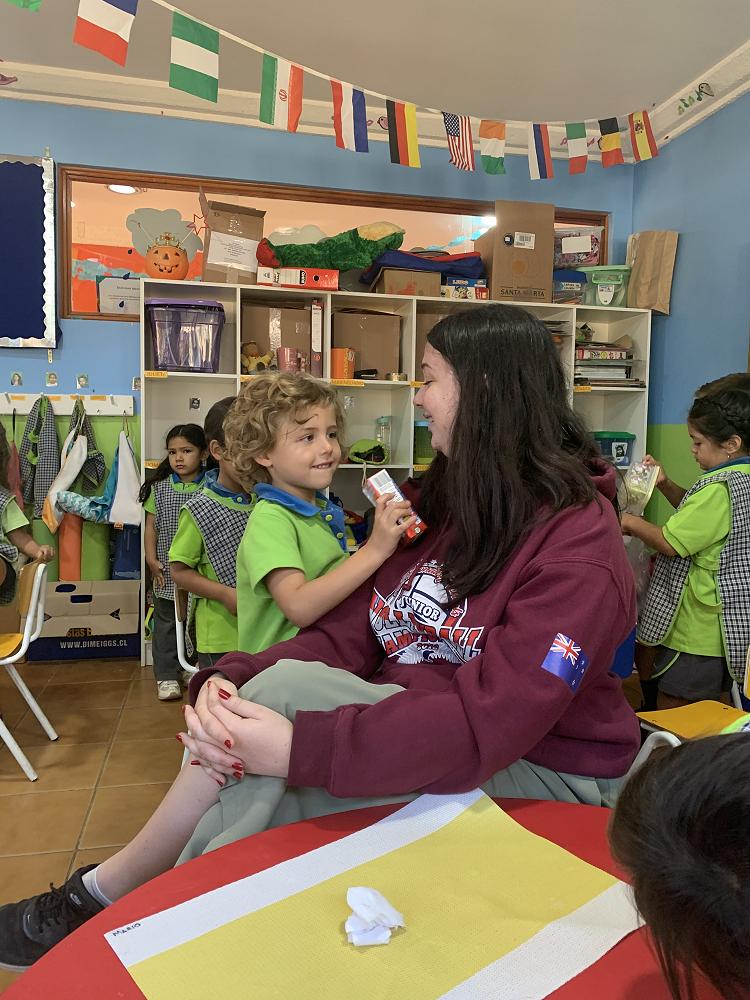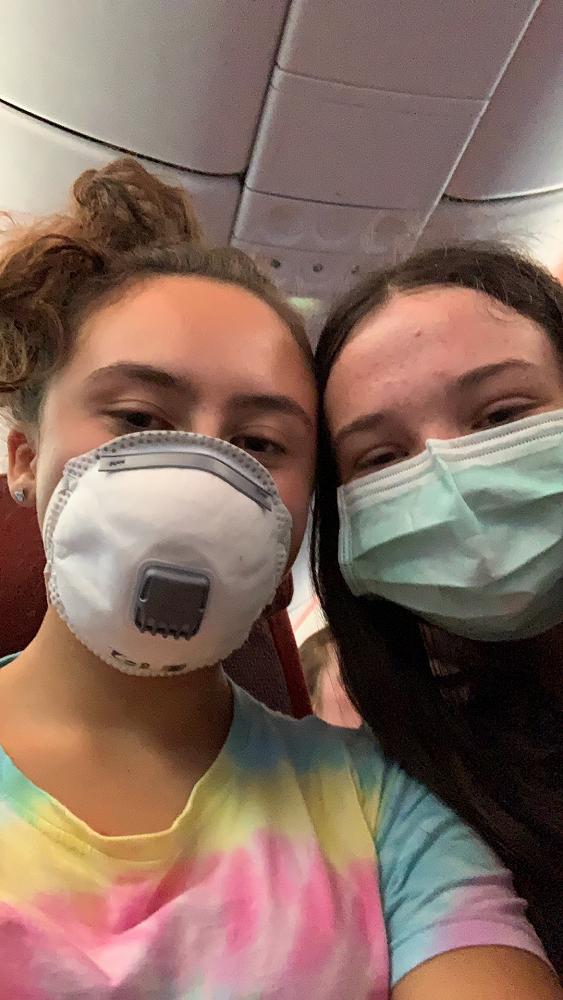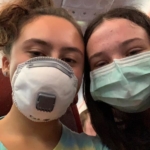It should have been the trip of a lifetime, and in many ways it was. However, Year 12 students Emma Barnes Wetere, Nikita Kirkwood and Jed Shackleton are counting their lucky stars after narrowly making it home from their Chilean exchange in the midst of the Covid 19 crisis.
The students had a mad scramble to get back to New Zealand and were in danger of being stranded in Chile. Although they made it back, the students then had to go into a two-week quarantine – Emma and Nikita in Nelson, with Jed having to isolate by himself in a hotel in Auckland.
The students embarked on what was meant to be a three month trip in February. The exchange allowed them to live and go to school in Curacavi, a small Chilean town approximately the size of Motueka, half an hour outside of Santiago. The exchange is a reciprocal arrangement with Curacavi’s Farmlands school, with Nayland often hosting Chilean students from there.

The students also found it challenging getting used to a different school system.
“The school was more like primary or intermediate is here,” Nikita said. “You didn’t move classrooms and the classroom was very small. We often went into the library because the teachers didn’t know what to do with us.”

Working on schoolwork from back home in New Zealand was difficult as the internet was often difficult to access.
“The school didn’t have functioning WiFi for the students,” Emma said. “Even though it was a private school by Chilean standards, by New Zealand standards, it was quite basic.”
“The electricity did go out a few times,” Nikita added.
Although all students had studied Spanish during their time at Nayland, there was still a considerable language barrier to overcome when it came to conversing with their new class mates.
“They speak really, really quickly,” Jed said. “The way they pronounce words is different.”
“We study Spanish that would be spoken in Spain,” Emma added. “Whereas South American Spanish is slightly different again. So sometimes even though we know how to say something one way, that wouldn’t be the way that they would say it in their country.”
Despite the challenges there where still lots of highlights for the Kiwi students. Jed enjoyed going to visit Viña del Mar, a beautiful beach city. Nikita got to go caving in a volcano.
The students all saw a very different side of Chilean life however when they ventured into the biggest city in Chile, Santiago.
“The day we went in, we saw three large protests going on. They brought in a giant military tank to shoot tear gas at the protesters,” Emma said.


But any of these ups and downs that the students experienced were dwarfed by the final challenge the students faced: the reality of being potentially stranded in Chile, when the world went into panic mode and then lockdown.
“We were joking about it during lockdown that we might get stuck there, then the news came that if we didn’t leave now, then we would get stuck there,” Nikita said.
Leaving the country was no mean feat, and the Nayland students, and their families, scrambled to try and get home.
“The whole time we were in lockdown my family were trying to get me a ticket home and the problem was that the airline phone and internet booking systems were collapsing,” Emma said. “Then my mum got in touch with the NZ embassy in Chile, and the advice given was that I was to go to the airport, beg the airlines to put me on a wait list for a flight out and just wait at the airport until I got on a flight. That is what Nikita and I did. At the last minute, we managed to get on a flight out.”
Once back in New Zealand, all three students had to go into quarantine for two weeks. Unfortunately Jed, who had a slightly easier time getting out due to help from the New Zealand Embassy, did not make it back to Nelson in time and had to quarantine solo.
“I had to isolate in a hotel in Auckland for two weeks,” he said. “We didn’t get out much. I got out once every three days for a walk.”
Despite a dramatic and disappointing end to their trip, the students still got an awful lot out of it and are keen to go back to Chile when they have the chance. It has also given the students a new appreciation about life here in New Zealand.
“It has made me realise how privileged we are here in New Zealand, with everything being so green,” Emma said. “We’re safe wherever we go walking to. We have such high standards of schooling and education. It was a wake up call that we have it pretty good.”
“Don’t take anything for granted in New Zealand,” Nikita said. “I took for granted that I could just drink water. My house (in Chile) ran out of water sometimes and I wasn’t allowed to drink water out of a tap.”
“I got a newfound respect for the basics and how the Chileans are doing so well off of what they’ve got,” Jed said.
By Duncan McKinlay


